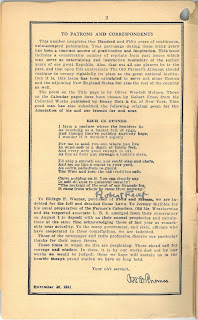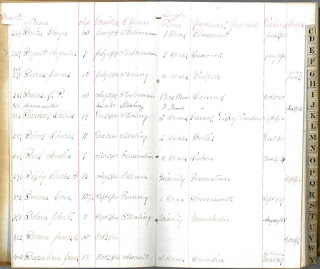 Last week, we brought you an 1890 plea to farmers to stay in New Hampshire. The lure of the rich soil of the Midwest was proving too strong, and land prices in New Hampshire were suffering. Skip forward fifty-odd years, and here we have a kind of admission of defeat in the first appearance of Robert Frost's poem, "Rich in Stones," in the 1942 Old Farmer's Almanac. Frost, an on-again, off-again New England farmer, knew what he was writing about. The short poem is narrated by an old New England farmer:
Last week, we brought you an 1890 plea to farmers to stay in New Hampshire. The lure of the rich soil of the Midwest was proving too strong, and land prices in New Hampshire were suffering. Skip forward fifty-odd years, and here we have a kind of admission of defeat in the first appearance of Robert Frost's poem, "Rich in Stones," in the 1942 Old Farmer's Almanac. Frost, an on-again, off-again New England farmer, knew what he was writing about. The short poem is narrated by an old New England farmer:I farm a pasture where the boulders lieIt is addressed to one who has moved away to more fertile fields in the west:
As touching as a basket full of egg
In wind-soil to a depth of thirty feet.Then the narrator fantasizes about shipping a largish stone west to "set up like a statue in your yard." There it would stand as
And every acre good enough to eat
"The portrait of the soul of my Gransir Ira.There is a certain crustiness to the poem that captures the spirit of Yankee farmers too stubborn to head west, but also an acknowledgement of the futility of staying behind.
It came from where he came from anyway."
This is part of our Robert Frost First Appearances collection that is incorporated into our Robert Frost Collection. You can ask for it by requesting MS-1178, Box 32, Folder 71.



